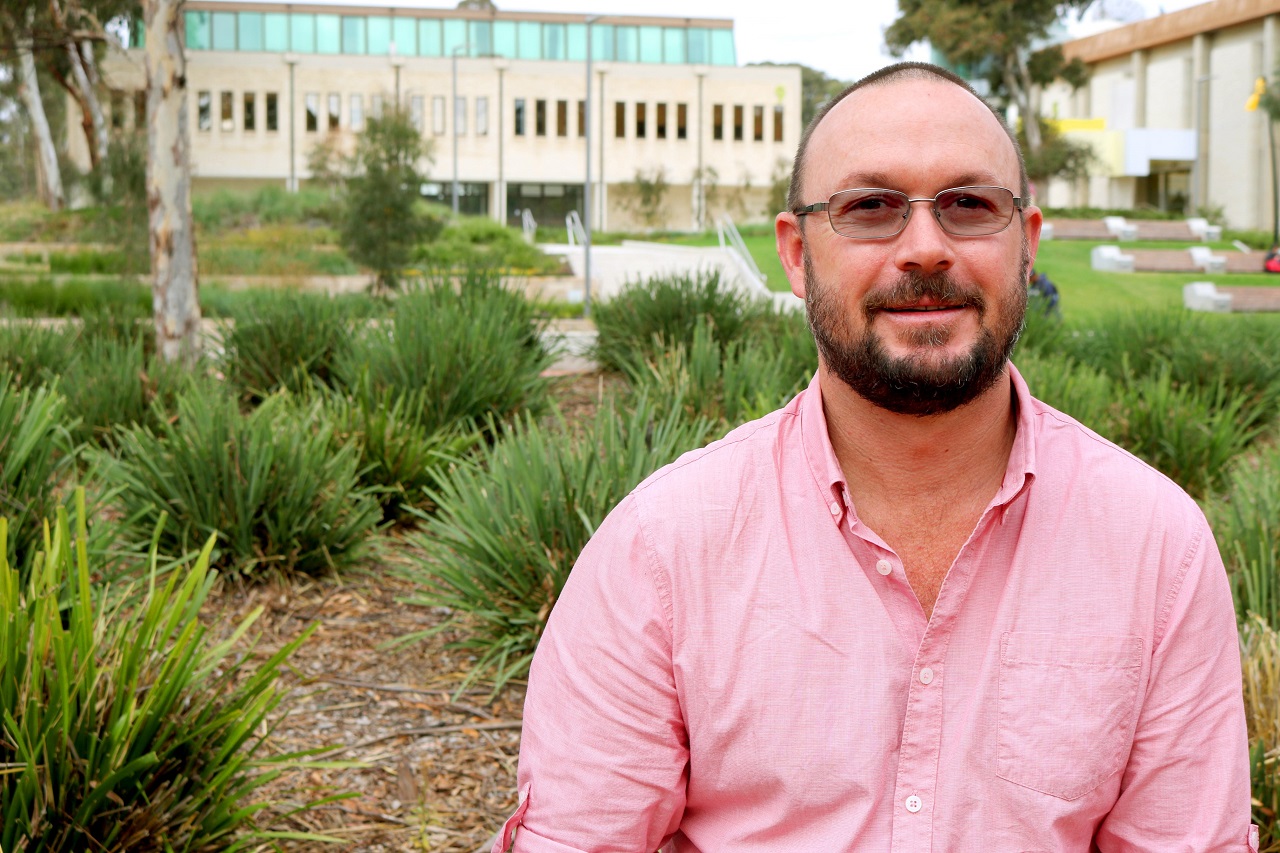Ideas, Progress & the Future
Advocating for change in rural education
Imagine sitting in an Australian classroom in the final weeks before receiving an ATAR score that could potentially set you on a career path that could change your life, only to realise that you have no understanding of what is being taught and wondering ‘what is the point of this’? That is the reality many students in remote and rural areas of Australia face when it comes to their education.
As an agent of change, Dr Philip Roberts, Associate Professor in the Faculty of Education at the University of Canberra, is trying to change this reality. Philip was one of three UC recipients of the Australian Research Council’s (ARC) Discovery Early Career Researcher Awards (DECRA) of funding of over $400,000 that will go towards his research project, Engaging rural knowledges in education for sustainable community futures.
Through his project, Philip aims to facilitate rural communities in describing the knowledges they possess, and work with them to have these knowledges recognised and included in education.
“This project is geared towards understanding the knowledges that exist in rural communities and how they can be harnessed within the existing curriculum better, along with gathering learning insights that could influence changes in the curriculum in the future,” says Philip.
Philip and his team will trawl through detailed analysis of data from systems, community focus groups, and school case studies in six rural, regional and remote communities to help education better meet the needs of those communities.
Philip says this project draws upon his previous work, particularly around how to attract teachers to country schools and how they can engage and connect with the students once they get there.
“At the moment, teachers are preparing students to get good grades,” says Philip. “In terms of how that is assessed and managed is within the language of the curriculum.”
The problem is that the curriculum is geared towards students living in metropolitan areas. Philip says the challenge is that a lot of rural students don’t study things that could be helpful to them for building their careers in new and emerging industries.
“If we can help students understand that the subjects they are studying are not only in line with the rest of the country but are also meaningful, that they have a place in their lives and communities even if they don’t go on to university, then we should see better outcomes,” says Philip.
Part of the problem is that teachers who come from the cities often don’t understand the country. A good teacher would be able to connect subjects like physics, chemistry and maths to rural industries to inform better understanding through context.
Through his research, Philip is hoping to understand how teachers make the curriculum understood and relevant to rural students and to come up with approaches to train in-service and future teachers, as well as reform the Australian curriculum.
“We would like to create a curriculum model that enables teachers to facilitate approaches that ensure engagement, understanding and relevance for their students,” says Philip.
Philip’s interest in rural education started when he was a teacher in NSW country schools, which he did for 13 years. His advocacy and passion for rural education began when he started speaking up about staffing issues and how things were done in rural areas.
“Very early on, working in those country areas, it struck me that what we were doing as teachers didn’t make a lot of sense in the communities,” says Philip.
“What I saw really alarmed me. For a lot of people teaching in rural communities there was an incentive to leave. Every day they would count down the days until they could move on to bigger and better things.”

Philip’s passion to bring about change led him to UC to embark on many different research projects focused on rural education and to develop the rural education and communities research group.
After 15 years of hard work, Philip can now add the prestigious ARC DECRA to his achievements.
“It is humbling to have that validation and the support of the assessment panel and peak research body,” says Philip. "It is career-defining in many ways. Recognition by the ARC moves your research to a new, and exciting, level."
Philip says there’s often not a lot of funding and time in education research and the little there is, is often focused on the classroom.
“To be able to look at the broader construct of what we do in education in this context is a unique opportunity and something we have to make sure we deliver on to provide a basis that others can follow,” says Philip.
“The design of the DECRAs is to start a body of work, so I see this as the beginning for me and my team to gain insights that we will then take on to further research trials and projects.”
Words by Katarina Slavich. Photos by Adobe Stock and supplied